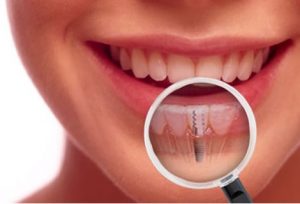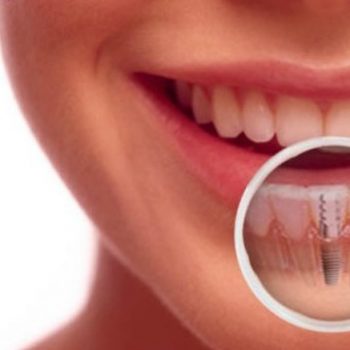FAQs RELATED TO DENTAL IMPLANT TREATMENT, PART III
- On July 24, 2017
- dental health, faq, implantology, implants
Concerning dental implant treatment, it is necessary to follow the information and consensual criterion of a dentist, even though dental surgery does not require hospitalization.
For this reason, I continue with the third part of Patientbooklets, a pamphlet edited by the European Association for Osseointegration (E.A.O.), which comprises 56 frequent questions provided by those patients who should face an implant treatment.
The previous instalments were focused on conceptual approaches to the implant as an external element to the mouth. However, this instalment deals with general questions arising when dental implants are already put in the mouth.

- How long do implants last?
Implants have high success rates and there are reports that evaluate its performance for a period of over 35 years. The most recent studies indicate that 90%t of implants placed ten years ago are still functional today.
The long-term success of implants also depends greatly on how well they are cleaned and maintained. In most cases, it is recommended an annual check-up as a minimum, so implants can be professionally cleaned by your dentist. Moreover, brushing and using dental floss twice a day is essential for their long-term survival.
- Will implants feel different from my natural teeth?
Natural teeth are surrounded by the periodontal ligament, which produces a sensation of pressure when biting or chewing. Implants are not surrounded by this ligament, so the feel you get would be quite different.
- Are implants painful?
No. It is used a local anaesthetic before surgery to avoid any pain when placing the implants. In case of feeling any mild discomfort after surgery, you can soothe it by taking conventional analgesics.
- What are the potential complications?
There are several complications, but they all of them can be managed effectively:
- Bone loss
Bone loss can occur around implants. Visiting your dentist on a regular basis will help you to detect any potential bone loss.
- Infections
Poor oral hygiene is the main trigger of oral infections around implants. In order to prevent them, implants should be professionally cleaned by your dentist or hygienist on a regular basis. If you are a periodontal patient, you should also follow a programme of preventive periodontal therapy. It is also important to brush your teeth carefully at least twice a day.
- Implant loss
An implant can be lost for different reasons, such as infection or fractures, but it does not usually happen. Normally, you can replace it with a new one.
- Implant fracture
These cases rarely occur – in less than 1% of cases. This type of complications usually happens to patients with parafunctional habits (bruxism).
- Potential complications with the prosthesis
Porcelain crowns or bridges can be easily fractured. Minor fractures (chipping) tend to happen more to implants than to natural teeth, due to a lack of shock absorbency between the implant and the bone.
Fractured crowns, bridges, prosthetic screws or screw loosening occur quite rarely and only happens to less than 10% of patients. This kind of complication is usual among patients with parafunctional habits (bruxism) or unstable occlusion, as well as with other kinds of overload.
- If I am a periodontal patient, can I have dental implants?
Yes, periodontal patients can have dental implants. However, it is crucial to adqueately treat any outbreak of periodontitis affecting your natural teeth before heading surgery to place an implant. Periodontal patients are more at risk of suffering complications with their implants.

- If I have lost a tooth/teeth due to periodontal disease, can I use dental implants?
Yes, if you have lost a tooth/teeth due to periodontitis, it is advisable to place an implant. However, it is crucial to treat periodontitis before heading any surgical intervention to place the implants.
- Can periodontitis affect my dental implants?
Yes, as periodontitis can affect your natural teeth, it may increase the risk of affecting your dental implants.
For more information, visit EAO’s website https://www.eao.org/history-of-eao
In case you want to see the original document, visit this website: https: //www.eao.org/en


